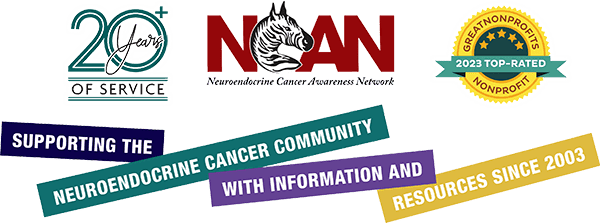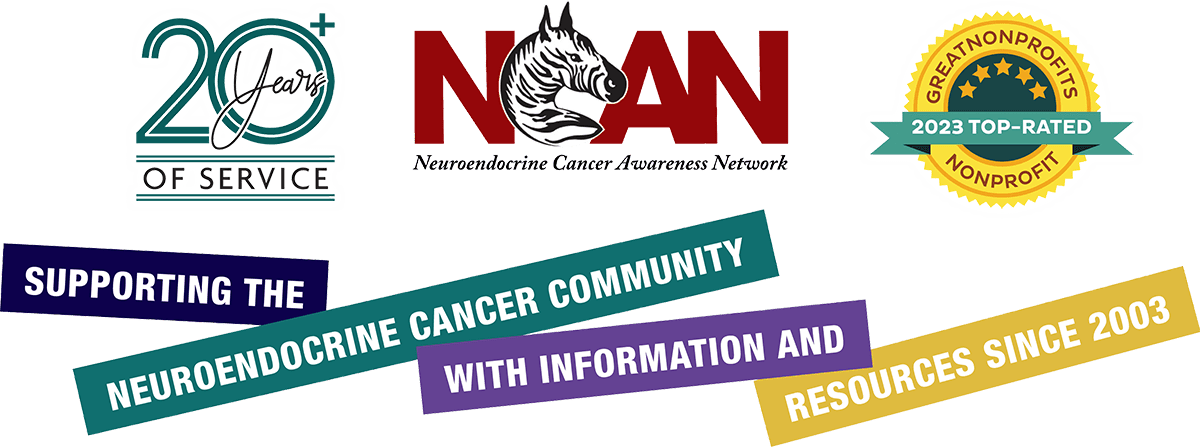August 1, 2023
By Anne Dabbs,
NCAN TN Support Group Leader, NET Patient

“Should I Stay or Should I Go?”
Who would have thought that this 1982 punk rock song would become my anthem while deciding when to go to the ER or not.
Those of us who live with a chronic illness like Neuroendocrine Cancer must develop critical thinking skills to help determine when a trip to the emergency room is the best decision or if our needs can be met otherwise.
I try to remind myself that an Emergency Room is for, well, emergencies and is is not intended to be used as a convenience to my regularly scheduled life.
Before heading to the ER, I always ask myself:
1. Is the symptom I’m feeling pain or discomfort?
2. Is the pain acute or chronic?
3. Did it start suddenly and is it debilitating?
4. Is my situation a flare up of a previous ailment which became aggravated?
5. Could my situation be equally evaluated or resolved at an Urgent Care Clinic?
6. Can I request a same day virtual visit with my PCP?
7. Does my PCP have an After Hours Clinic they recommend?
8. I honestly ask myself, “Is this truly an emergency?” Or am I setting myself up for many uncomfortable hours waiting in a less than peaceful environment?
9. It is important to ALWAYS TRUST YOURSELF. If you are having symptoms that suggest heart problems, trouble breathing, or stroke, call 911 and get to the ER as quickly as possible!
Once I have decided a trip to the ER is warranted, as a chronic disease patient I am as prepared as possible to get the most from my visit.
When I choose a facility I ask myself these questions:
1. Does my doctor practice there?
2. Do I need an ER equipped as a trauma center? A cardiac center?
3. Is the facility large enough to have the necessary diagnostic equipment?
4. Is it staffed with personnel likely to be familiar with rare diseases?
At the ER triage, I am very honest, accurate, and concise about my overall health prior to my current situation. I try to be as descriptive as possible about my symptoms such as pain intensity, duration, and locations. It is my responsibility to provide the information to help them solve my puzzle. The staff will first rule out out life threatening possibilities before they proceed to finding the source of my immediate discomfort.
One ER doctor recommends a 30 second synopsis of your reason for seeking current, immediate help. Then following with a 2 minute version to give the staff the bigger picture of your overall health status. Sounds impossible, but practicing your 2 minute health summary and being prepared to deliver it to any medical personnel at any time will help.
If possible, I always have an advocate with me at the ER to help remember instructions. I keep an advocacy bag readily available to take with me, which contains copies of current diagnosis, medications, and allergies. It also contains records of surgeries and my most recent scans. Emergency contact information and medical power of attorney paperwork is also included. I find it is helpful to keep a handful of change for vending machines and a sweater in my bag as well!
I like to be prepared for the possibility of being admitted for additional testing or being discharged with referral recommendations to my PCP or a specialist. Both are possible outcomes from a successful ER visit.
Finally, I make sure I understand my discharge instructions. (This is where another set of ears in the room can be helpful.) I keep all appointments and follow treatment recommendations by the ER. I also make sure my physicians are aware of the issue and resolution which prompted my visit to the emergency room.
Contemplating a visit to the Emergency Room is frequently an angst inducing event. Hopefully these tips will minimize frustrations for you and help you to be prepared in advance to make the most out of your visit.
One of our primary goals at NCAN is the education of our Neuroendocrine patients and advocates. By accessing the Resource Room and videos of previous patient conferences, you can increase your knowledge of typical and atypical health concerns unique to our disease. Additionally our hotline is open 356 days a year 9am-9pm so don’t hesitate to CALL.
Find out more about how YOU can help the NET Community.
Disclaimer: NCAN blog posts are the opinions of its writers and are not intended as a replacement for medical advice. Please consult your Health Care Providers for individual concerns.


Post a comment